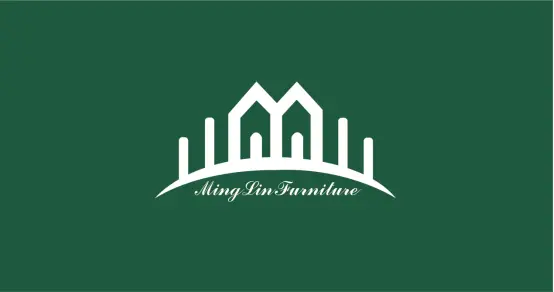In recent years, the global market for wood furniture, particularly wood coffee tables, has witnessed significant growth, driven by evolving consumer preferences for sustainable and aesthetically appealing products. According to the International Wood Products Association, the global wooden furniture market is projected to reach $400 billion by 2025, with coffee tables representing a substantial segment, reflecting home decor trends that emphasize natural materials and craftsmanship. However, navigating the complex landscape of global trade certifications is crucial for manufacturers and retailers alike. Compliance with various international standards not only ensures product quality and safety but also enhances marketability and consumer trust. This comprehensive guide aims to equip stakeholders with the essential knowledge to successfully navigate the regulatory frameworks governing the trade of wood coffee tables, thereby fostering sustainable practices and supporting the industry's growth in this competitive marketplace.

Navigating the world of global trade certifications for wood coffee tables can be challenging for manufacturers and retailers alike. Understanding the various certifications available is crucial, as they not only ensure compliance with international standards but also enhance the credibility of products in a highly competitive market. Certifications such as the Forest Stewardship Council (FSC) and the Sustainable Forestry Initiative (SFI) demonstrate that the wood used in these tables is sourced sustainably, promoting responsible forest management practices.
Additionally, compliance with regulations such as the U.S. Environmental Protection Agency's (EPA) standards for formaldehyde emissions plays a significant role in the certification process. Meeting these health and safety standards reassures consumers that their furniture is safe for use in their homes. As the demand for eco-friendly and sustainable products rises, understanding these global trade certifications becomes essential for anyone looking to succeed in the wood coffee table market. By prioritizing certified materials and adhering to international standards, businesses can not only protect the environment but also cater to the growing consumer demand for sustainability.

When navigating compliance for wood coffee tables, it's essential to understand the key regulatory bodies and their roles in wood furniture compliance. Various organizations set standards to ensure that wood products meet specific environmental criteria, particularly concerning deforestation. This is increasingly important as consumers and governments demand sustainable practices in the production and trade of wood products.
The European Union (EU) has emerged as a leading force in regulating wood imports, introducing the Deforestation Regulation which mandates that companies prove their products are sourced from deforestation-free areas by December 30, 2024. This legislation impacts not just timber but also other commodities like palm oil and soy, pushing businesses to adopt traceability practices to ensure compliance. Companies operating within or exporting to the EU must prepare to demonstrate their commitment to sustainable sourcing, encountering both opportunities and challenges as they align with these stringent requirements.
In Brazil, local environmental policies are being reassessed in light of the EU's new regulations, creating a unique intersection of opportunities for compliant businesses while simultaneously heightening the challenges of meeting international sustainability standards. By staying informed on these developments, businesses can better navigate the complexities of global trade certifications and position themselves advantageously in the market.
| Certification Body | Certification Type | Region | Key Standards | Website |
|---|---|---|---|---|
| FSC (Forest Stewardship Council) | Chain of Custody | Global | FSC-STD-40-004 | fsc.org |
| PEFC (Programme for the Endorsement of Forest Certification) | Chain of Custody | Global | PEFC ST 2001:2020 | pefc.org |
| ANSI (American National Standards Institute) | Product Standards | USA | ANSI/BIFMA | ansi.org |
| EU Ecolabel | Environmental Label | EU | Regulation (EC) No 66/2010 | ec.europa.eu |
| CARB (California Air Resources Board) | Air Quality Standards | USA | CARB Phase 2 | arb.ca.gov |
When selecting a wood coffee table, understanding the various global certifications can greatly impact your purchasing decision. Common certifications such as the Forest Stewardship Council (FSC) and the Sustainable Forestry Initiative (SFI) ensure that the wood used in your table is sourced ethically and sustainably. These certifications not only promote responsible forest management but also provide assurance that the materials have been harvested in an environmentally friendly manner.
Moreover, various international standards further guide consumers in choosing high-quality furniture. Certifications like CARB (California Air Resources Board) regulations focus on reducing harmful emissions from furniture products, ensuring that your coffee table is not only beautiful but also safe for your home environment. By choosing certified products, you contribute to a more sustainable and environmentally conscious furniture market. When considering a coffee table, look for these labels to ensure you are making a responsible and informed choice.

Non-compliance with international trade regulations can significantly impact businesses engaged in global commerce, particularly in sectors such as furniture manufacturing. For instance, wood coffee tables must comply with a myriad of certifications to enter various markets. Failure to meet these compliance standards can lead to substantial financial losses and operational disruptions. According to a recent report from the International Trade Administration, non-compliance can result in tariffs as high as 25% under the U.S.-Canada-Mexico Agreement (USMCA), effectively nullifying profit margins for businesses that overlook these requirements.
Moreover, global trade sanctions and regulatory shifts can create a minefield for exporters. The European Union's Corporate Sustainability Due Diligence Directive (CSDDD) aims to enforce sustainability in supply chains, meaning companies must not only understand the legal frameworks but also implement sustainable practices. With research indicating that around 70% of companies are currently unprepared for such compliance, the risk of penalties is alarmingly high. This underscores the necessity for businesses to invest in robust compliance programs to navigate the complexities of international trade effectively.
As the demand for sustainable furniture continues to rise, the certification of wood coffee tables has become a crucial aspect of global trade. Future trends indicate that consumers are increasingly prioritizing eco-friendly materials and ethical production processes. This shift is prompting manufacturers to seek certifications that not only assure quality but also demonstrate a commitment to sustainability. Organizations like the Forest Stewardship Council (FSC) are leading the way in establishing standards that promote the responsible management of the world's forests, thereby enhancing consumer trust and brand loyalty.
Moreover, technological advancements are set to revolutionize the certification process. Blockchain technology, for instance, promises to provide transparency throughout the supply chain, allowing consumers to trace the origin of wood used in their coffee tables. As brands adopt innovative solutions to certify their products, we expect to see a surge in customized certifications that resonate with environmentally conscious buyers. In this evolving landscape, companies that embrace these trends will not only meet regulatory compliance but will also create a competitive edge. Sustainability is no longer a mere trend; it is now an essential component of the furniture industry’s future.
